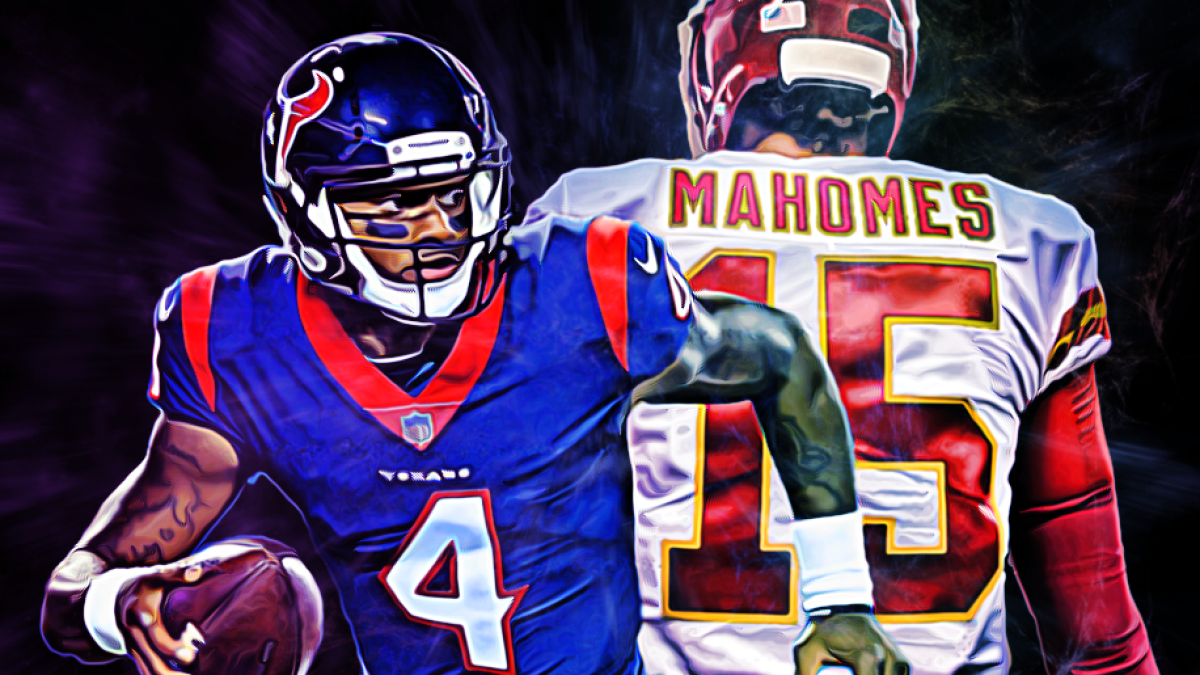As the clock struck quadruple zeros at Arrowhead stadium, the conversation around the Chiefs, the Texans and their third-year quarterbacks had changed — or at least shifted. Last Sunday, Deshaun Watson had unquestionably outdueled Patrick Mahomes, the presumed best young quarterback in the NFL. The reigning MVP went from the prospective MVP frontrunner to sharing the upper tier with Watson and Russell Wilson in updated betting odds.
Watson's ascension into the national MVP discussion was least foreseen, once a 60/1 bet to win the award and now sitting at 4/1. Our perceptions have changed so much on these two young quarterbacks that an analysis asking if Watson and Mahomes were equals by USA Today’s Steven Ruiz reads as sensible, not absurd as it would have been viewed in the preseason. In fact, Watson has many measures pointing to him being an equal to Mahomes this season, among them a higher PFF pass grade (76.9 to 76.1), similar ESPN quarterback rating (QBR, 75.9 to 76.6) and the same 4-2 team record with a potential tiebreaker secured.
Despite the fact that Watson has been an equal of Mahomes this season, most wouldn’t automatically put them side by side. Yes, Mahomes has had the worst two games of his career in back-to-back weeks. But a couple of sub-par games don’t carry much weight for a quarterback with an incredible track record over 2018 and the first few games of this season. We know intuitively that past performance, while mattering less than recent performance, still matters a lot when evaluating our expectations going forward. The question lies in how much past performance should factor into future expectations.
In this piece, I’ll explore if Watson should be viewed as an equal to Mahomes going forward using statistical techniques to quantify the passing skills of each quarterback. We’ll see that our view of quarterbacks, and all positions for that matter, shouldn’t be a single assessment, but a range of outcomes informed by expectations and evidence. Once we can credibly estimate ranges for players, we can weigh costs against the likelihood of different scenarios and make the most informed decisions. Being able to quantify appropriate ranges of outcomes is the first part and the hardest part, and that’s what I set out to do here.



 © 2026 PFF - all rights reserved.
© 2026 PFF - all rights reserved.